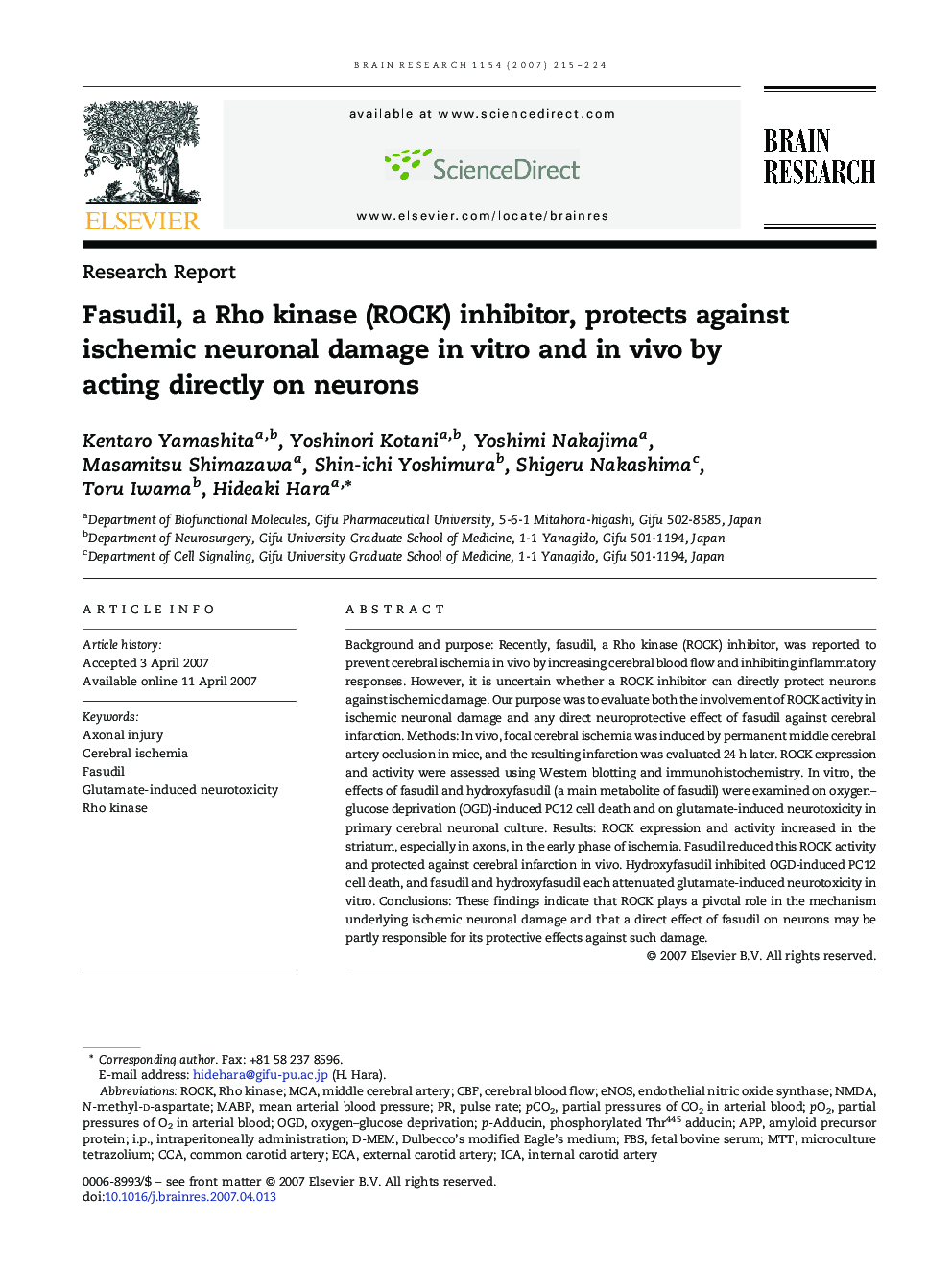| Article ID | Journal | Published Year | Pages | File Type |
|---|---|---|---|---|
| 4331066 | Brain Research | 2007 | 10 Pages |
Background and purposeRecently, fasudil, a Rho kinase (ROCK) inhibitor, was reported to prevent cerebral ischemia in vivo by increasing cerebral blood flow and inhibiting inflammatory responses. However, it is uncertain whether a ROCK inhibitor can directly protect neurons against ischemic damage. Our purpose was to evaluate both the involvement of ROCK activity in ischemic neuronal damage and any direct neuroprotective effect of fasudil against cerebral infarction. Methods: In vivo, focal cerebral ischemia was induced by permanent middle cerebral artery occlusion in mice, and the resulting infarction was evaluated 24 h later. ROCK expression and activity were assessed using Western blotting and immunohistochemistry. In vitro, the effects of fasudil and hydroxyfasudil (a main metabolite of fasudil) were examined on oxygen–glucose deprivation (OGD)-induced PC12 cell death and on glutamate-induced neurotoxicity in primary cerebral neuronal culture. Results: ROCK expression and activity increased in the striatum, especially in axons, in the early phase of ischemia. Fasudil reduced this ROCK activity and protected against cerebral infarction in vivo. Hydroxyfasudil inhibited OGD-induced PC12 cell death, and fasudil and hydroxyfasudil each attenuated glutamate-induced neurotoxicity in vitro. Conclusions: These findings indicate that ROCK plays a pivotal role in the mechanism underlying ischemic neuronal damage and that a direct effect of fasudil on neurons may be partly responsible for its protective effects against such damage.
